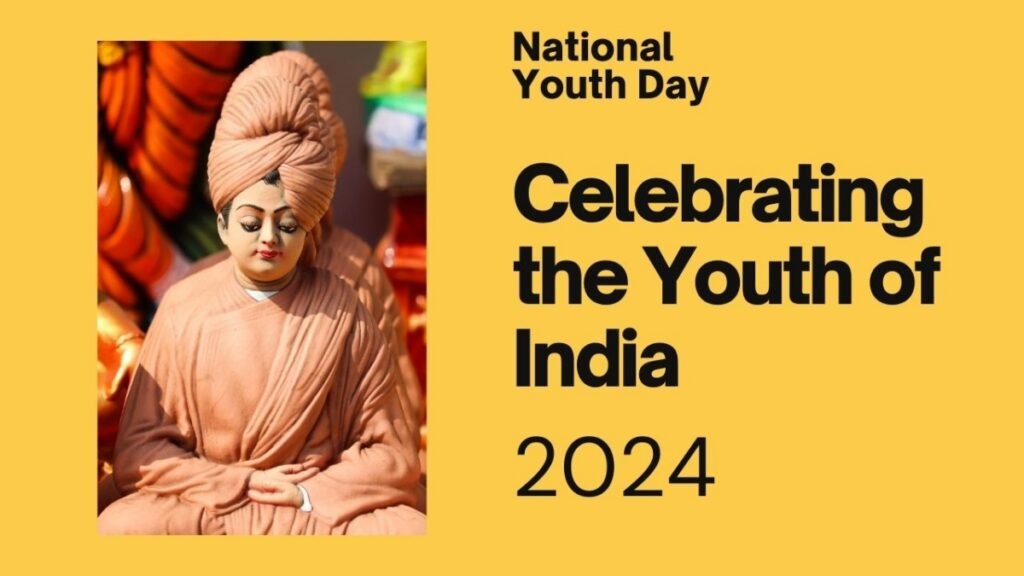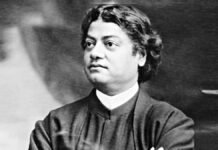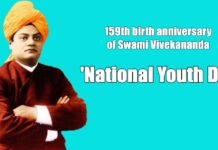
Every year on 12th January, India observes ‘National Youth Day’ to commemorate the birth anniversary of Swami Vivekananda, one of the most influential spiritual leaders and thinkers of the country. The day is dedicated to the youth of the nation, who are the future leaders and change-makers of the society. The aim of celebrating this day is to spread the message and ideals of Swami Vivekananda among the young generation and to motivate them to contribute to the development and progress of the country.
The History of National Youth Day
The idea of celebrating Swami Vivekananda’s birthday as National Youth Day was first proposed by the Ramakrishna Mission, founded by Swami Vivekananda himself, in 1984. The Government of India accepted the proposal, which declared that from 1985 onwards, 12th January would be observed as National Youth Day every year. The reason behind this decision was to acknowledge the role of Swami Vivekananda as a source of inspiration and guidance for the Indian youth. Swami Vivekananda was a visionary who had a deep understanding of the problems and potentials of the youth and who advocated for their empowerment and education.
The Objective of National Youth Day
Swami Vivekananda was a multifaceted personality who had a vast knowledge of various fields such as religion, philosophy, history, art, social science, and literature. He was also well-versed in Indian classical music and was an avid sportsman. His life and teachings exemplified the ideals of self-reliance, service, patriotism, and universal brotherhood. He also shared his valuable insights and advice for the youth on many occasions, urging them to be strong, confident, courageous, and compassionate. He said, “My faith is in the younger generation, the modern generation, out of them will come my workers!”
The objective of celebrating National Youth Day is to remind the youth of the country of the legacy and vision of Swami Vivekananda and to encourage them to follow in his footsteps. The day is also an opportunity for the youth to reflect on their own goals and aspirations and to think about how they can make a positive difference in society and the world. Various programs and activities are organized on this day in schools, colleges, universities, and other institutions, such as rallies, seminars, workshops, competitions, cultural events, and exhibitions, to showcase the talents and achievements of the youth and to promote their awareness and involvement in various issues and causes.
Why is 12th January Chosen as the Date for National Youth Day?
Swami Vivekananda was born on 12th January 1863 in Kolkata, West Bengal. He was a disciple of Sri Ramakrishna Paramahamsa, a renowned saint and mystic of India. He became famous for his speech at the Parliament of the World’s Religions in Chicago in 1893, where he introduced Hinduism to the Western world and impressed the audience with his eloquence and charisma. He traveled extensively across India and abroad, spreading the message of Vedanta, the ancient philosophy of India, and establishing the Ramakrishna Mission and the Ramakrishna Math, the twin organizations for spiritual and social service. He passed away on 4th July 1902 at the age of 39.

The date of 12th January was chosen as the date for National Youth Day to honor the birth anniversary of Swami Vivekananda, who is regarded as the patron saint of the Indian youth. Swami Vivekananda was a role model for the youth, who embodied the spirit of dynamism, innovation, excellence, and harmony. He said, “Arise, awake, and stop until the goal is reached!” His words and deeds inspire the youth to strive for their highest potential and to work for the welfare of all. National Youth Day is a tribute to the great soul who dedicated his life to the upliftment and enlightenment of the youth and humanity at large.








































![The Glory | Official Trailer | Netflix [ENG SUB]](https://palpalnewshub.com/wp-content/uploads/2023/03/1678289001_maxresdefault-150x84.jpg)



